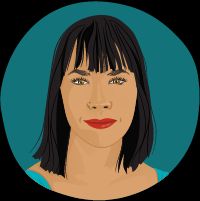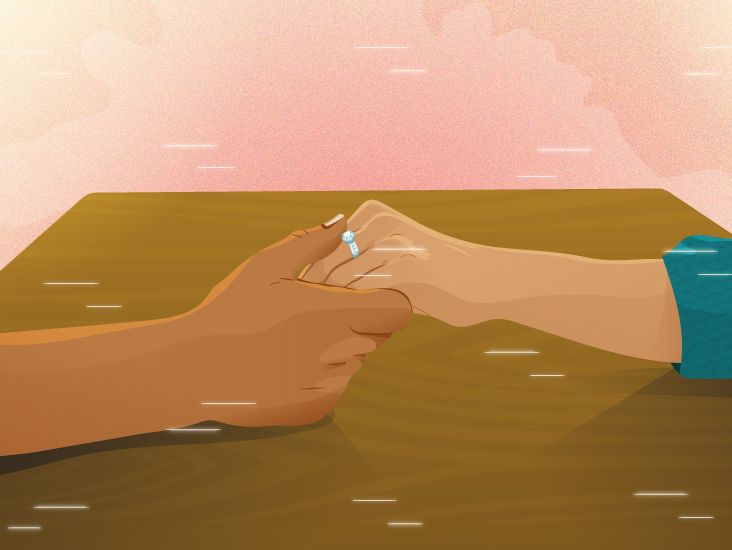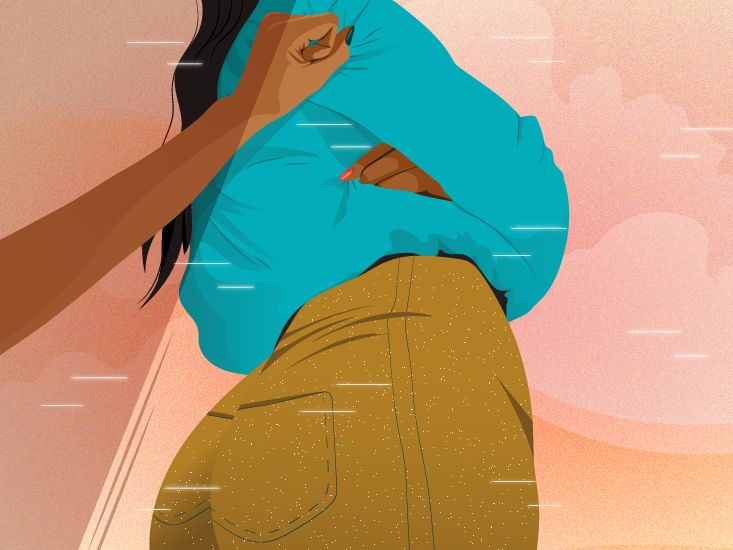
Dear Tissue Issues,
A friend of mine was diagnosed with EDS recently. I had never heard of it, but when I read up on it, it felt like I was reading about my own life! I’ve always been very flexible and get tired a lot, and have had joint pain for as long as I remember.
I talked to my primary care doctor and she referred me to a geneticist. After a 2-month wait, I finally had my appointment. And she said I don’t have EDS. I feel devastated. It’s not that I want to be sick, it’s that I want an answer to why I am sick! Help! What do I do next? How do I move forward?
— Apparently Not a Zebra
Dear Apparently Not a Zebra,
I know all too well the praying, wishing, and hoping that a medical test will come back positive. I used to fear that made me an attention-seeking hypochondriac.
But then I realized I wanted a positive result because I wanted answers.
It took me 32 years to get my EDS diagnosis and I’m still a little angry that no doctor figured it out sooner.
My lab work always came back negative — not because I was faking, but because routine blood work can’t detect genetic connective tissue disorders.
I know you thought EDS was the answer and things were going to get easier from here. I’m so sorry that you’ve hit another roadblock.
But let me offer you another perspective: this is good news. You don’t have EDS! That’s one more diagnosis you’ve eliminated, and you can celebrate that you don’t have this particular chronic illness.
So what should you do next? I suggest you set up an appointment with your primary care doctor.
Before you go in, make a list of everything you want to talk about. Then pick your top three concerns and make sure you address those.
If there’s time, talk about everything else. Be honest with your doctor about your fears, your frustrations, your pain, and your symptoms. Definitely ask for a physical therapy referral. See what else she recommends.
But here’s the thing: the most surprising thing I’ve learned is that the best pain relief isn’t necessarily available by prescription.
And I know that suuuuucks. And if it sounds condescending, I’m sorry, and please bear with me.
When I was diagnosed with EDS, suddenly so much of my life made sense. As I worked to process this new knowledge, I became a little obsessive.
I read posts from EDS Facebook groups daily. I had constant revelations about this date in my history or that one injury or that other injury, oh my gosh! That was EDS! It’s all EDS!
But the thing is, it’s not all EDS. While I’m grateful to know what’s at the root of a lifetime of odd symptoms, EDS isn’t my defining characteristic.
Sometimes my neck hurts, not from EDS, but because I’m always bending over to look at my phone — just like everyone else’s neck hurts because they’re always bending over to look at their phones.
Unfortunately, sometimes you never get a diagnosis. I suspect that may be one of your biggest fears, but hear me out!
I challenge you to focus on treatment and recovery rather than nailing down what exactly is wrong. You may never know. But there’s so much you can do, on your own, at home, with friends or a partner.
My very wise orthopedist has told me that the “why” of pain isn’t as important as “how to treat it.”
You can feel better and get stronger even if you don’t know exactly what’s causing your symptoms. There’s so much help out there and I truly believe you can start feeling better soon.
I highly recommend the app Curable, which uses various techniques, including cognitive behavioral therapy, to treat chronic pain. I was skeptical but I’ve been amazed at what I’ve learned about where pain comes from and how I can actually manage it using only my mind. Give it a try.
Curable taught me that diagnostic imaging is often unhelpful in terms of showing the cause of pain and that chasing diagnoses and reasons is not going to help your pain. I encourage you to try it. And if you hate it, feel free to email me to rant about it!
For now, focus on what we know works for chronic pain: regular exercise, muscle strengthening, PT, getting good regular sleep, eating good foods, and drinking lots of water.
Get back to basics: moving, sleeping, treating your body like it’s precious and mortal (it is in fact both).
Keep me updated. I hope you find some relief soon.
Wobbly,
Ash
Ash Fisher is a writer and comedian based in Portland, Oregon. She was voted 2017 Best Comedian Runner-Up by East Bay Express, was featured on Viceland’s comedy documentary “Funny How?,” and has performed in SF Sketchfest several times. Ash holds a BFA in Theatre from NYU’s Tisch School of the Arts. Her life revolves around her sneaky corgi named Vincent. Read more of her work at her website or follow her on Instagram.





